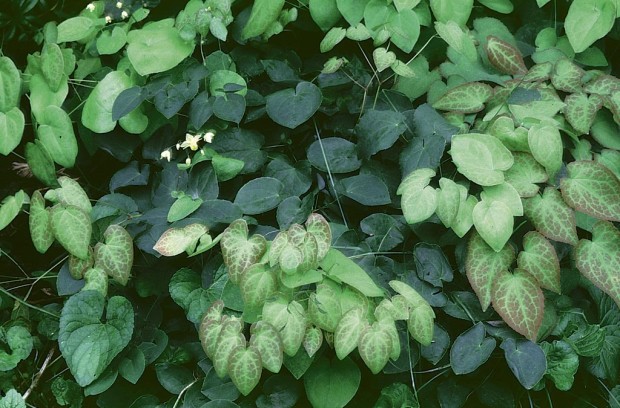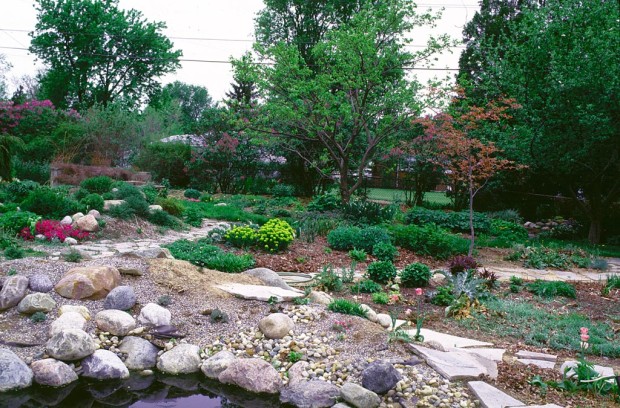
By Janet Macunovich / Photos by Steven Nikkila
Much can be said for standing on one’s head. Surprising discoveries await for anyone who will take the time to take a different perspective.
Take garden design for example. “Spring flowers” is a cliché that colors our lives from children’s books to classic literature. So we go into garden design with an overwhelming bias toward flowers. Designs start and sometimes end with pairs made solely for bloom — red tulips (Tulipa ‘Red Riding Hood’) that will bloom with basket of gold (Aurinia saxatilis), blue ajuga (Ajuga repens) with pink species tulips (Tulipa pulchella).
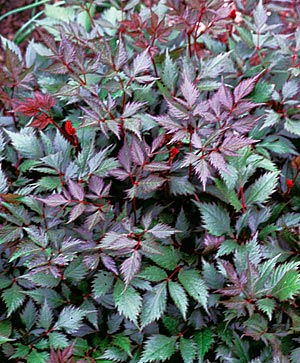
Now try that headstand. Change something, radically. Assume, for instance, that all flowers are invisible. See what happens? Notice anything new? Flowers are, in fact, invisible during the early part of the season. Once the search for flowers ends, we notice that April is full of glorious foliage. Gardens are beautiful regardless of the flowers.
We see leaves, stems, and buds that are fresh, crisp, saturated, unmarred blue, chartreuse, gold, maroon, silver, and other hues intense beyond description. The tones change by the hour and the day, like the very best sunset, so rich and glossy it might be oil on canvas not yet dried. At least once in every lifetime this spectacle grabs the eye, arrests thought, and makes us dewy-eyed about spring.
Then we become jaded. If it doesn’t have or can’t be made to look like it has a big, bright flower, preferably one that looks like a rose, we don’t even see its other qualities.
Think about a favorite garden plant. Now, name its early spring color. Can’t put your finger on it? Maybe your view has been muddied by the “floral perspective.”
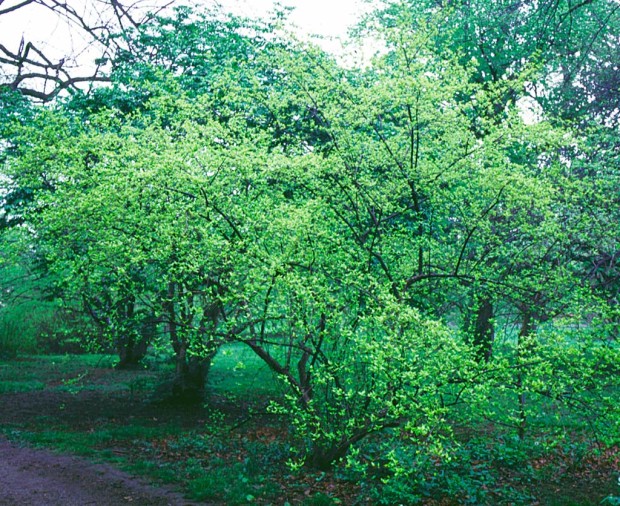
What’s more, we’re often still indoors when spring foliage charm takes the stage. Anchored by our winter weight, looking solely for “the first flower,” we miss spring’s entire opening act.
It’s an act that begins long before the flower garden becomes a feature in the landscape. It’s a toe-tapper, guaranteed to overcome off-season inertia and renew one’s faith in the natural world. Make an effort to see it, design for it, and be there.
Take this different, non-floral view as you start into a new design or plan a new perennial, shrub or groundcover combination. Spark the burgundy foliage of emerging peony with the gold of lemon thyme. Reflect the peeling bud caps of quince in the brick-red edge of epimedium leaves. Have some fun and get an extra month from your garden design.
Don’t be surprised if you stop caring about the flowers and they become the surprise.
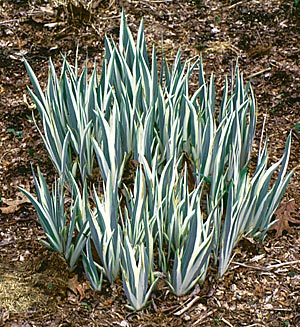
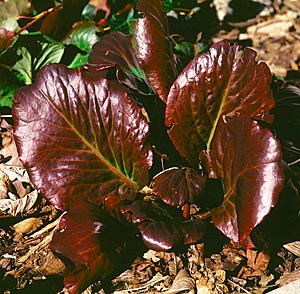
Some starters:
A climbing rose with foliage that opens bronze-red (‘Henry Kelsey’ is one), against the white peeling bark and lime green leaf buds of seven-son shrub (Heptacodium miconioides)
Blue hostas (like Hosta ‘Blue Cadet’) with Irish green sweet woodruff (Galium odoratum).
Glossy maroon new foliage of Bergenia cordifolia with the silver blue fiddle heads of Japanese painted fern (Athyrium niponicum ‘Pictum’).
‘Red Carpet’ Sedum, intensely scarlet at the feet of furry, grey-green large-flowered comfrey (Symphytum grandiflorum).
The deep violet foliage of shrubby Clematis recta ‘Purpurea’ leaning against the supportive stems of Ural false spirea (Sorbaria sorbifolia), simultaneously leafing out an indescribably rich, red-edged green.
Janet Macunovich is a professional gardener and author of the books “Designing Your Gardens and Landscape” and “Caring for Perennials.” Read more from Janet on her website www.gardenatoz.com.

